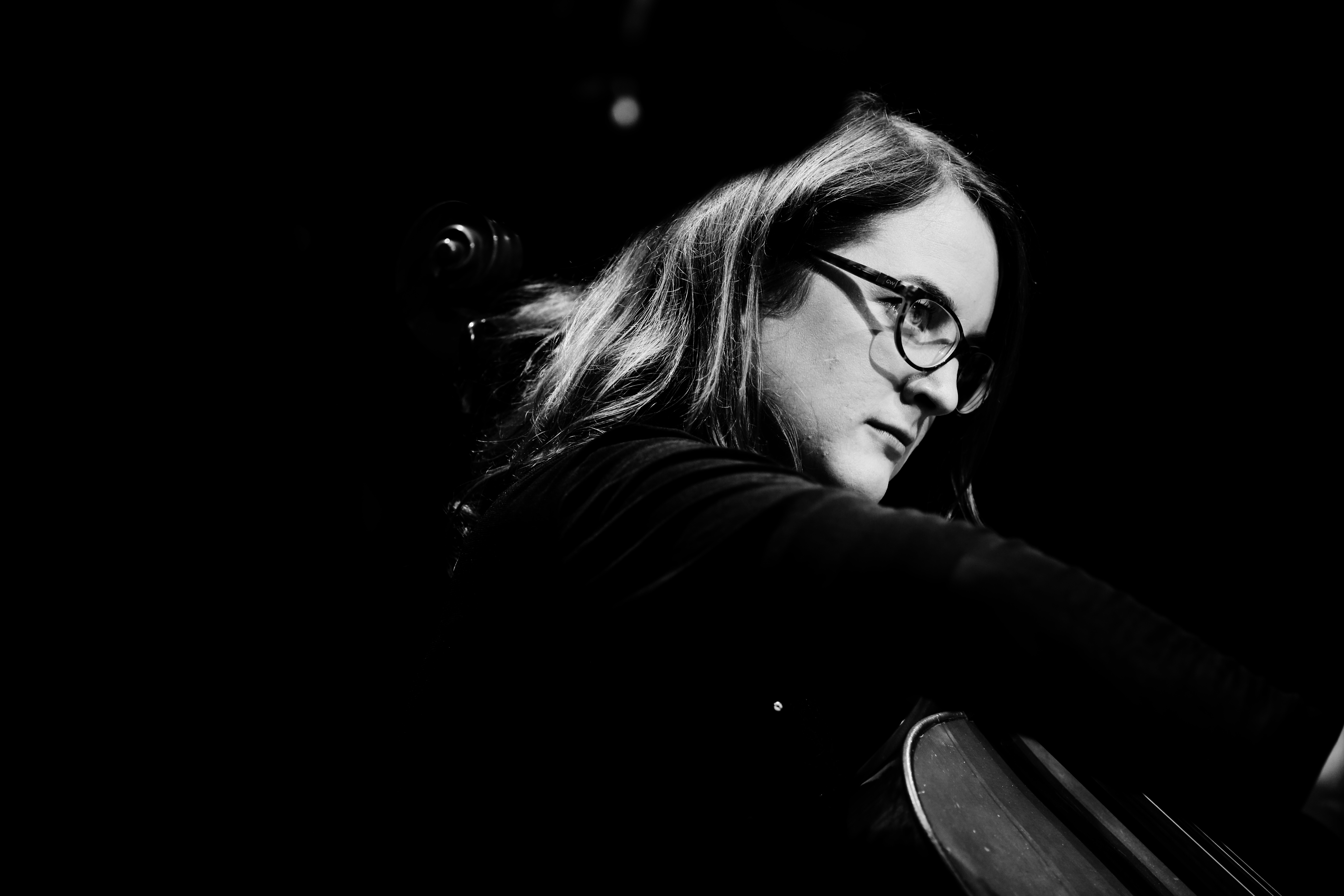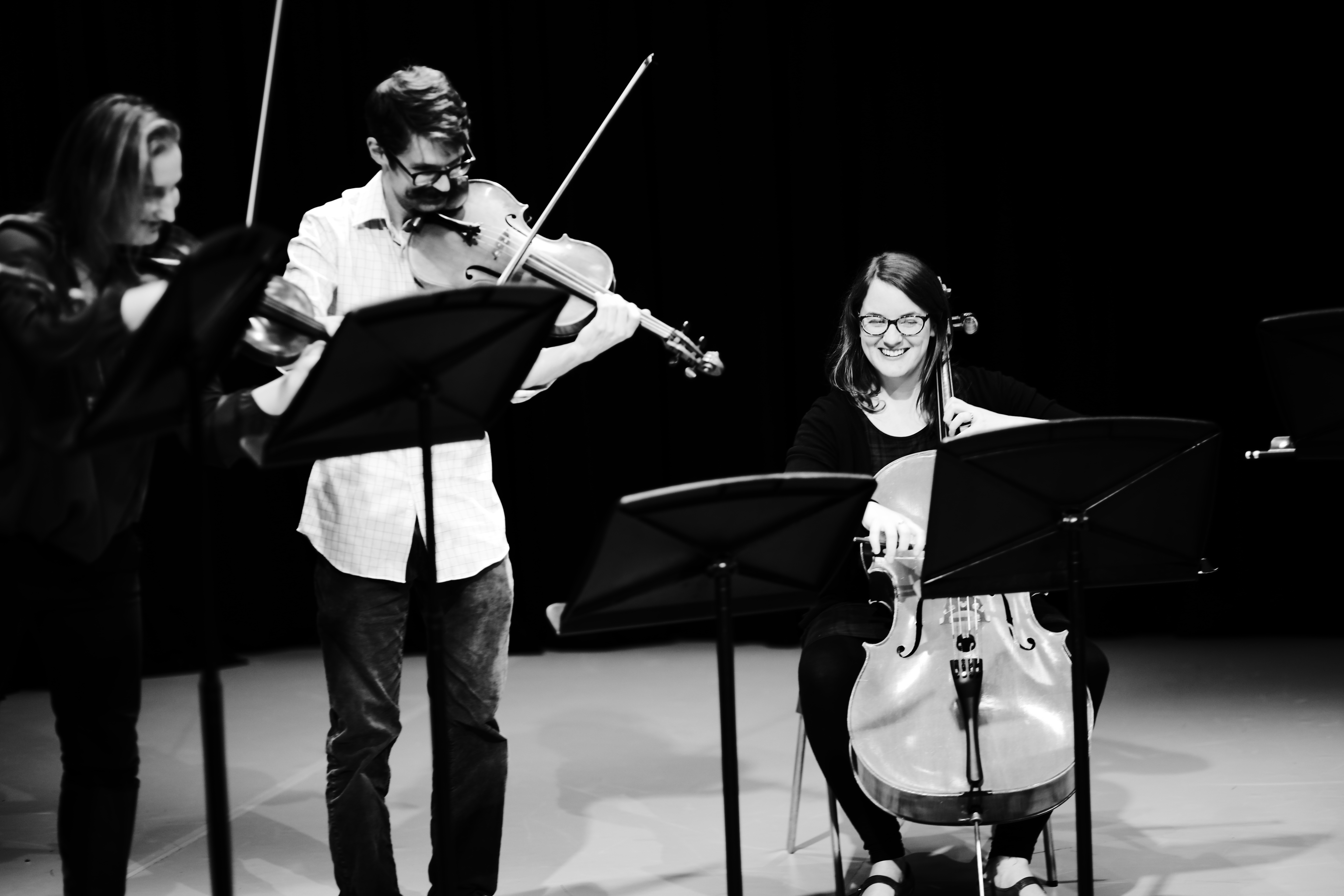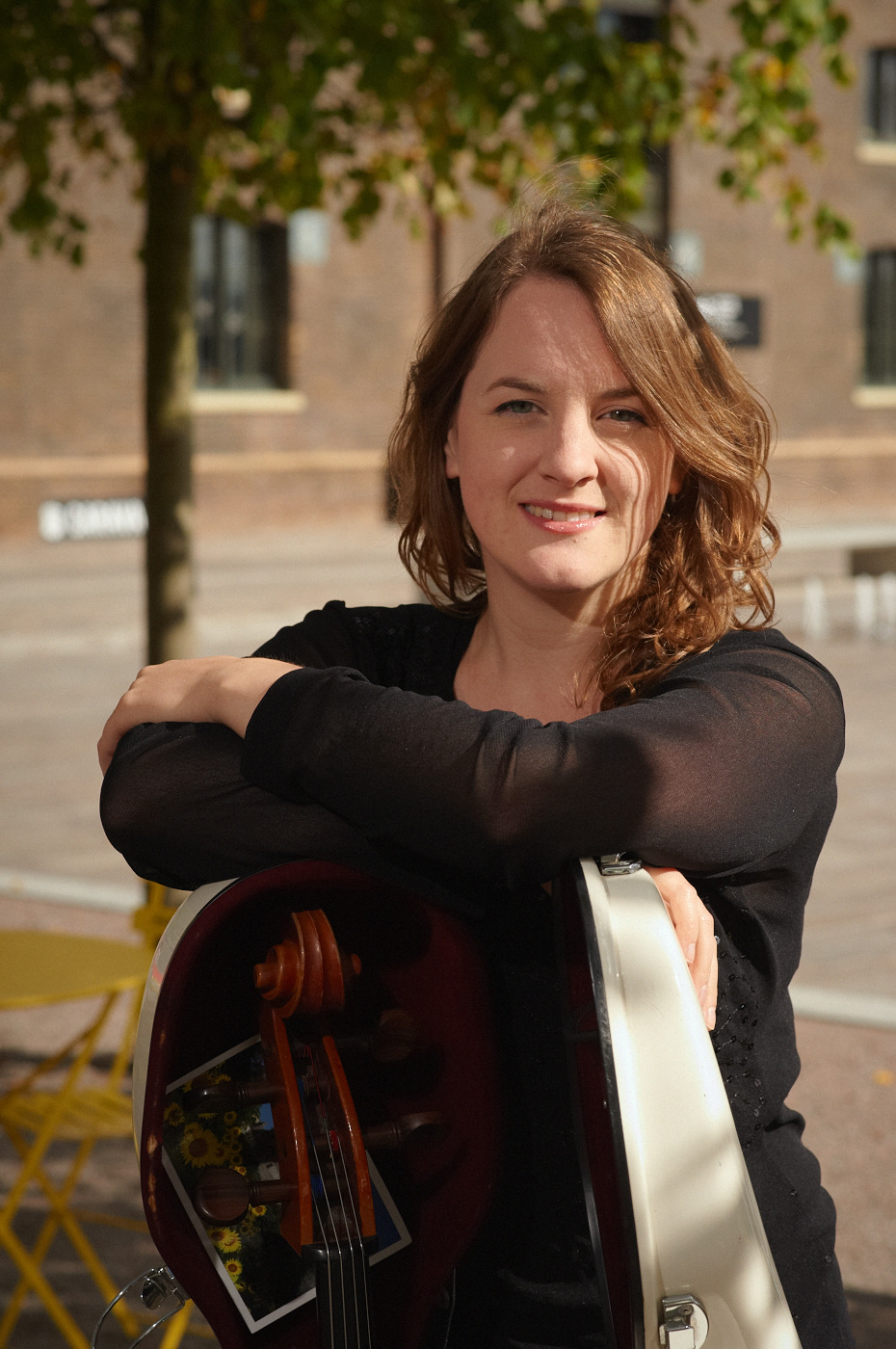“Being a musician is about finding your own voice and forging your own path, rather than trying to emulate another person’s career or style of playing.”
Southbank Sinfonia alumna Gemma Wareham is a devoted chamber musician, performing with a diverse range of ensembles throughout the UK and abroad, and is a founding member of the Berkeley Ensemble.
Ahead of the
Berkeley Ensemble’s side-by-side project with our current Fellowship, we spoke with Gemma about her career as a cellist, the importance of making industry contacts, and her advice to aspiring musicians.
You graduated from the Royal Northern College of Music in 2007. Did you know what direction you wanted to go in as a cellist after this?
Not immediately no, but I knew I needed to look for opportunities to grow as a player and as a musician. Music college, or intense instrumental study wherever it may be, is a crucial stepping stone in reaching the technical level needed to have the confidence and the facility to work at a professional level, but for me, I was very much shaped by my experiences outside of study where I had to stand on my own two feet and find my own voice. Southbank Sinfonia had a huge impact on me at that crucial stage just after music college, and it opened my eyes to the breadth and depth of the art world. I have always been a bit of a free spirit and that has translated into my career which has been a joyous mix of all sorts of music-making.
What motivated you to join Southbank Sinfonia?
I applied to Southbank Sinfonia thinking ‘I might as well, but I’ll never get in’. It looked like a great opportunity and a chance to make some connections in London. But when I stepped through the door for my audition I just knew this was the place I needed to be, and so when I received the offer of a place I was ecstatic.
The advice often given at music conservatoires for those starting out in their career is ‘apply to everything’. What do you think about this?
I’m not sure I would agree entirely with that idea because the audition preparation load could get a bit out of hand! But on the other hand, nothing will happen if you are stuck in a practice room. What I would say is be open-minded, never under-sell yourself, don’t be afraid to step out of your comfort zone and get out there making music. Even if the audition doesn’t end up in an offer, you will have made steps forward and connections with other musicians in the process and these are what lead to a rich career.
 You perform as part of the Berkeley Ensemble and as an orchestral musician. What does a typical week look like for you?
You perform as part of the Berkeley Ensemble and as an orchestral musician. What does a typical week look like for you?
I do both of those, plus I teach, I work in development for a youth orchestra and I’m currently General Manager for the Berkeley’s, so my week is quite a jigsaw. With two small children at home and a husband who also freelances, life is pretty hectic! But I’ve always known I thrive on variety so I’ve learnt to be better at recognising my limits (I don’t always get this right!) and prioritise family time as much as I can.
How important is it to create music industry contacts and network?
Hugely. But the word ‘networking’ makes people very nervous and puts unnecessary pressure on what should just be normal, natural conversations or shared enthusiasm, in my view. Music-making is a collaborative art, it needs humans to connect to give it power and impact and my most cherished performances have been those that have been born out of conversations that have planted the seed of an idea that has grown into an exciting project. It’s worth remembering that you yourself are an industry contact, even if you are just at the start of your career, we are all industry contacts. Art and music is made by collaborating and we are all adding to the collaborative pool.

What inspired you to form the Berkeley Ensemble?
We all just wanted to play great music with friends, and we must have known then that opportunities need to be created, they don’t always come knocking. On a long coach journey, several of us in SbS 6 wrote a list of the pieces we wanted to play on the back of an SbS concert flier (it’s still knocking around somewhere!) and that was where it all began. I believe we’ve nearly covered everything on that list (it was a long list and there were many more works added as we went along) so it’s time to start a new one!
How do you all (in the Berkeley Ensemble) coordinate and plan your schedules to rehearse and perform together, alongside your own individual work?
With difficulty! Every member of the ensemble has their own complex work tapestry and so planning a long way in advance is a must.
What advice would you give to someone starting out in their music career?
Always give your best performance and best self, whether it be a school concert or the Wigmore Hall. You never know who is in the audience, or who you will meet, and where that might lead. Crucially for me though, I needed to learn that being a musician is about finding your own voice and forging your own path, rather than trying to emulate another person’s career or style of playing. Using your authentic voice is what makes you a convincing performer.
Hear our current Southbank Sinfonia Fellowship perform side-by-side with the Berkeley Ensemble this summer at St John’s Smith Square. Find out more here.



